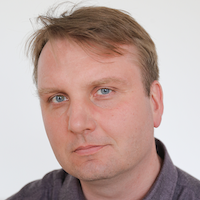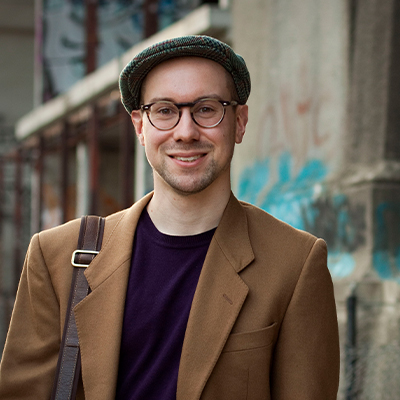Hi from Tallinn,
Only two weeks ago our newsletter focused on the rising far-right sentiment in Europe. Slovakian elections had just ended with a triumph for the vocally pro-Russian Robert Fico’s Smer party. Fico then invited local fascists to join his coalition. A similar scenario was expected to happen in the Polish elections.
Except it didn’t. Instead, the democratic opposition led by Donald Tusk registered a seemingly comfortable win. Alongside the ruling Law and Justice (PiS) party, also the far-right Confederation failed. My many Polish friends, who had all but given up on the hope of turning Poland back to a democratic path, were flabbergasted by the outcome.
This led us to a very lively discussion during the editorial meeting. Did the Polish elections mark the end of the rise of authoritarian and far-right parties in Europe? How will it affect Viktor Orbán’s hold of power in Hungary? How will the elections change Europe? Will it change anything at all?
These are some of the questions we will address in this week’s newsletter.
Holger Roonemaa, this week’s Editor-in-Chief
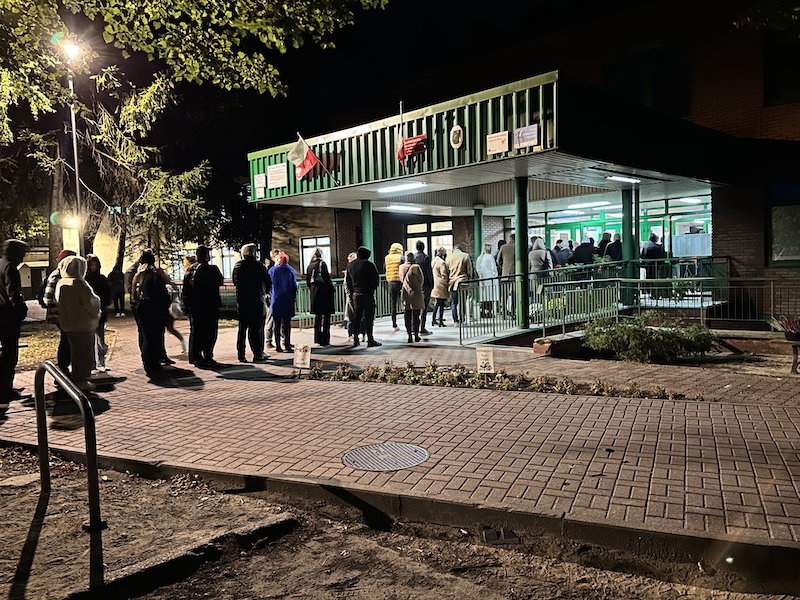
I was eight years old when communism collapsed in Poland, but I remember well the atmosphere of that time: Solidarity posters, family discussions about whether the ‘commies’ could be defeated, and great hopes for better times ahead. Hardly anyone expected it to succeed: the communists had the whole state apparatus, the media and the militia on their side.
Yet we prevailed. On 4 June 1989, communism came to an end in Poland.
Thirty-four years later, on 15 October 2023, the atmosphere surrounding the Polish elections was similar. Although we are now living in a free Poland, the reality was just as grey, harsh and devoid of hope for change. For the past eight years, we have watched the country slide into the depths of authoritarianism.
Instead of engaging in a lively discussion, we were condemned to listen to a monologue conducted by those in power. Anyone who thought differently was an enemy of the nation (or rather of the authorities). The nationalism that emanated daily from the mouths of the politicians in power left no room for us to breathe.
As in 1989, many believed that these elections would not change anything. But, just like at that historic juncture, the people of Poland proved to be unpredictable. The opposition — pro-European, democratic, with smiles on their faces — won unequivocally.
This happened because Poles mobilised on an unprecedented scale. Turnout exceeded a record 74 per cent, with some voters queuing for up to six hours to cast their ballots.
Once again, it proved that when Poles mobilise, they can rise to beautiful things. These elections restored my faith in democracy, people and Poland.
It is also a sign for the whole of Europe: authoritarian politicians do not know the day or the hour when the nation will shake them off.
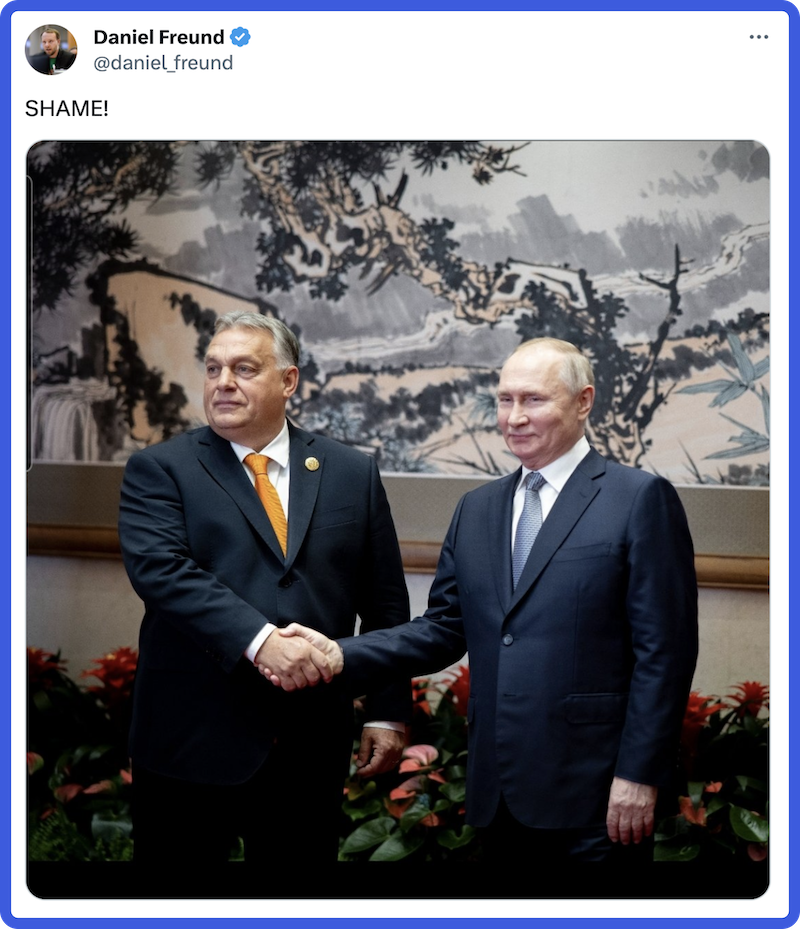
On the first day following his election victory in 2010, Hungarian Prime Minister Viktor Orbán travelled to Warsaw, where he was welcomed by his Polish counterpart Donald Tusk. Thirteen years later, Tusk is about to return to power, while Orbán seems to have chosen a different partner.
When Orbán met Russian President Vladimir Putin in Beijing last week, much of the Western world was aghast. Some called it “shame”, others a “security concern”, or even an embarrassment. It did not go down well with the Poles who – up until now – were staunch allies of the Hungarian government in the European Council.
A change of government in Poland could increase Orbán’s isolation within the EU. The PM may be comforted by the support of Slovakia’s returning populist Prime Minister Robert Fico, but the loss of the famous Polish-Hungarian friendship would be a serious blow.
And cosying up to war criminals does not seem to help his case.
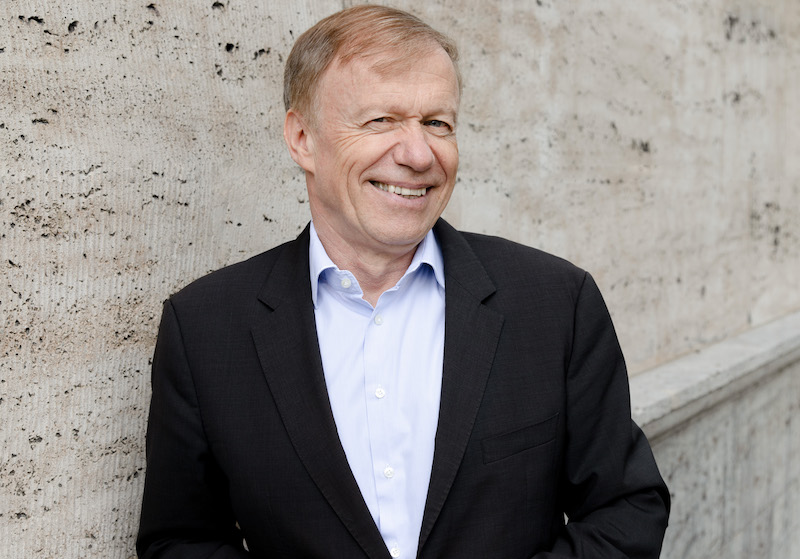
There are hopes that German-Polish relations can become less tense, says Rolf Nikel, vice-president of the German Council on Foreign Relations (DGAP) and a former German ambassador to Poland. He has recently published a book on Polish-German relations.
As Poland’s government is about to change, many people are hoping for a better and more constructive relationship with Germany. Is that hope justified?
With the opposition’s unexpectedly clear victory in the Polish parliamentary elections, Poland has made a powerful return to the European stage. This victory must now be translated into the formation of a stable government.
There are justified hopes that Polish foreign policy as a whole will become more predictable again and that relations with Germany will become significantly less tense. However, a simple return to the pre-2015 era will hardly be possible; but, a different rhetoric and a positive climate for talks would create good conditions for a new start of the relations.
In which areas do you see the greatest challenges in German-Polish relations?
The biggest challenge at the moment is the joint shaping of Europe’s eastern policy. By insisting on integrating Russia into the security architecture in Europe, Germany has been losing a lot of credibility in the past, which now needs to be regained.
Poland must also rebuild trust by arranging judicial reform in line with basic European norms. Also, differences of opinion on migration policy will not disappear anytime soon.
Where do you see the largest potential for joint German-Polish initiatives?
The chances for a fresh start are good. The common shaping of the future European Eastern policy on an equal footing is currently the priority. In this context, intensifying cooperation in the Weimar Triangle with France and Poland, including Kyiv on all issues concerning Ukraine, would be highly desirable.
While compensation for German crimes in World War II is legally settled, voluntary payments within a limited financial scope based on a moral responsibility of Germany make sense. The planned German-Polish House of Remembrance and Encounter in Berlin, mandated by the German Bundestag, should be moved forward quickly.
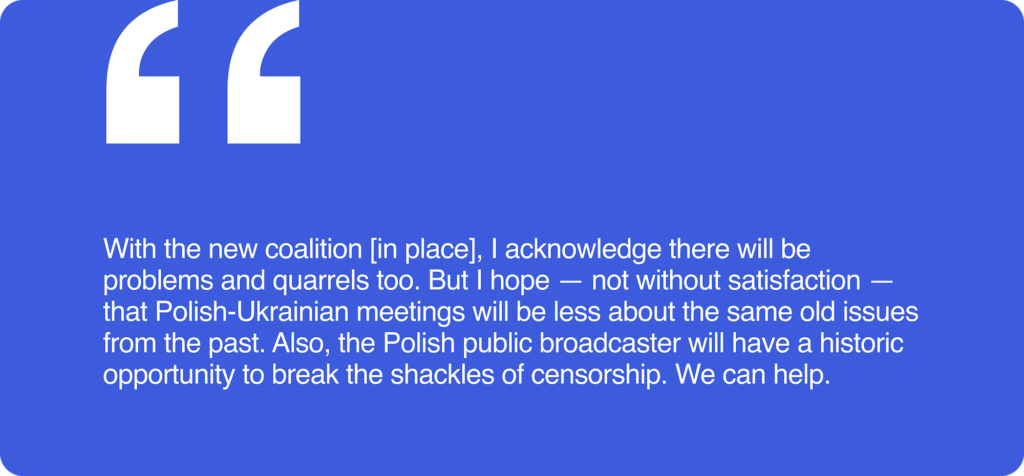
― Yevhen Hlibovytsky, Ukrainian public intellectual and Ukrainian Public Broadcaster board member.
All major political parties in Poland support Ukraine’s fight against the Russian invasion, so a victory for either the Law and Justice (PiS) party or the Civic Coalition-led opposition would have helped Kyiv.
But in the weeks leading up to the elections, Ukraine-related issues became highly politicised in Poland, including the revival of past conflicts to questions about Ukrainian grain prices and refugees. By criticising Kyiv, PiS tried to attract more voters from poorer regions.
A Ukraine-sceptic agenda was also adopted by the Polish public broadcaster TVP.
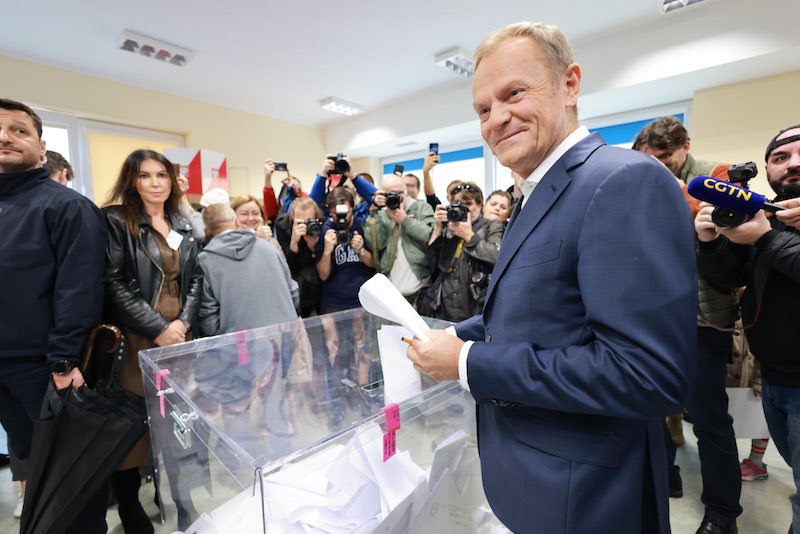
European voters have just taught us that the rise of the far right is not an incontrovertible fate.
I had no optimistic scenario in my mind, while waiting for the results at Civic Coalition leader Donald Tusk’s headquarters during the election night. Having seen the re-election of Viktor Orbán in April 2022, I knew how hard it was to change the rulers, when they have imposed their own rules. If a party controls the media, and influences the judges, their grip on power becomes stronger, and the more difficult it is to subvert the regime.
But then voters came with their push for a change. Although both the Spanish Popular Party and the Polish Law and Justice (PiS) party were ready to break the cordon sanitaire and use far-right seats as a crutch to bring them into government, the people in both countries said no to this plan: neither Spain’s Vox nor Poland’s Konfederacja performed well at the elections. This showed us how vibrant European democracies still are.
Before Poland’s elections, I visited the headquarters of the feminist movement “Strajk Kobiet” in Warsaw. I asked Marta Lempart, the leader of Polish pro-abortion protests, what had become of that unprecedented wave of dissent. She told me: “We changed our society; now we have to change politics.” The huge amount of young people, and women, that queued up to vote on 15 October, proved her right.
Law and Justice is still the party with most votes, and it still holds the levers of power: as Konfederacja’s leader Sławomir Mentzen said, “if Tusk wants to govern Poland, he will have the President of the Republic, the public TV and the Constitutional Court against him.”
Nevertheless, a majority of Polish voters asked for change. The high level of participation in the polls, the pro-European and pro-rule of law stances that the winning opposition embodies, provoked “a sigh of relief in Brussels and many capitals”, as Dutch MEP Sophie in’t Veld told me: “Europe was pulled back from the brink”.
Thanks for reading the 49th edition of European Focus,
As Slovakia’s recent election results showed, people forget quickly. Just five years after the killing of investigative journalist Jan Kuciak, when the society forced Robert Fico to resign, he is back in power.
This, as well as other similar experiences, help us keep a sober mind when assessing the possible impact of the Polish elections on the continent.
See you next Wednesday!
Holger Roonemaa


